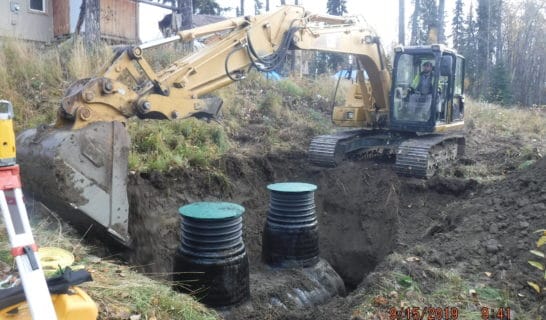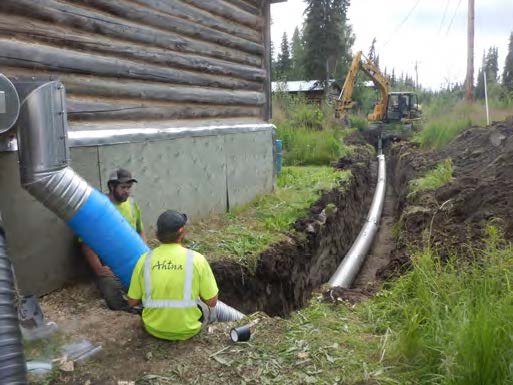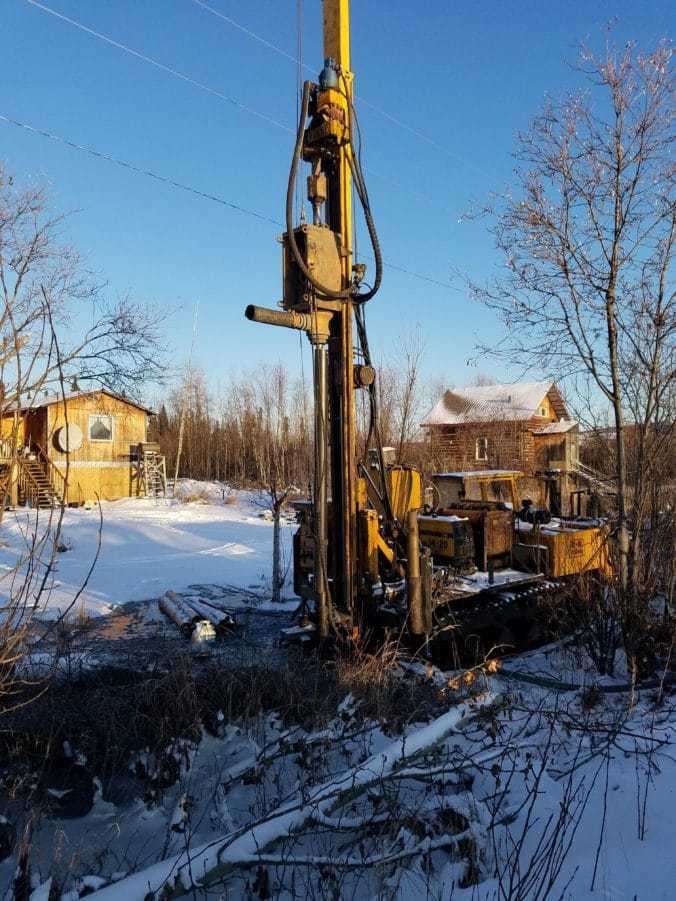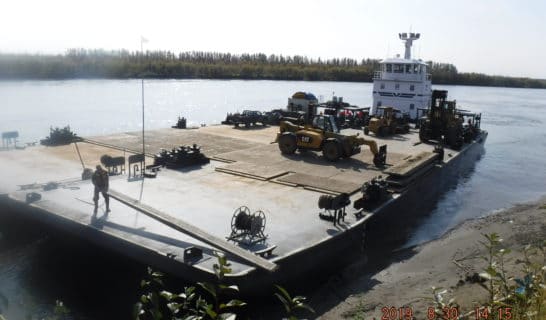
By Isaac Stone Simonelli, Alaska Business
The rapidly warming climate is having negative impacts on rural communities in Alaska, where there are already significant barriers to creating the necessary infrastructure for solid waste and sewage management.
“Negative ‘norms’ have been occurring over decades in communities that still struggle with lack of basic sanitation services [in more than thirty villages in Alaska],” explains Jackie Qataliña Schaeffer, the senior project manager of Alaska Native Tribal Health Consortium’s (ANTHC) Division of Environmental Health and Engineering.
“The impacts of climate change only compound the inadequate housing, aging infrastructure, and lack of basic services, which in turn affects all aspects of human health in indigenous communities.”
According to ANTHC Director of Community Environmental Health Michael Brubaker, “In many communities, changes in the land caused by thawing or flooding have resulted in impacts to critical infrastructure, such as foundations, containment walls, fences, pipelines, and roads. This results in damage and disruptions of service and in some cases breaches and spills.
“Extreme rain events can cause ponds and other containments to flood. There are also upstream impacts such as a longer season when the liquid waste is not frozen, and thus more likely to spill, or mid-winter warm spells which can cause stored waste to thaw, leak, or spill. In some cases, communities are having to abandon or relocate waste disposal facilities.”

Newtok
Changing shorelines in places such as Newtok only accentuate the problems surrounding harsh weather conditions and rugged terrain that are already obstacles to developing waste systems.
“Because the riverbanks are eroding and sloughing off into the water, it’s making it difficult to land a barge there,” Ahtna Global Director of Construction Ronald DesGranges says. “Getting equipment in there and containers to package the waste is difficult.”
In October, DesGranges’ team finished staging a Newtok project to remove solid waste from the site as the village continues preparations to relocate to Mertarvik.
Since 1994, residents of Newtok have been working toward leaving the slow-moving disaster zone—dozens of feet of the community’s shoreline are being lost every year to erosion. DesGranges says his team has already demolished several structures in the community that were hanging over the bank into the Ningliq River.
Though they were able to identify places to land barges to get equipment onshore, wet conditions forced the team to halt work until early this year.

“We’re going to go back in February when everything’s frozen, and we can walk around out there… and be able to clean up the landfill with our excavator and load those containers with the refuse and white goods [sinks, refrigerators, and similar items] that they have out there,” DesGranges says.
Even before the erosion issues, there were a few roadblocks to implementing an effective waste management system in Newtok. One is a lack of clean fill to bury refuse as part of a landfill system.
For decades, Newtok has gone without infrastructure development as resources were allocated to other rural communities that weren’t under the threat of being washed away by climate change.
However, in 2019 a Class III Landfill was constructed near Mertarvik. The landfill stores all types of solid waste, including household garbage and dried human waste from the separating toilets in the community, says Schaeffer of ANTHC.
“I flew over the landfill area, and it looks completely legit, as far as any landfill I’ve seen,” DesGranges says. “It’s just as good as Bethel or anywhere else that has an organized structure.”
But waste at the Newtok site still needs to be addressed; with the community moving to Mertarvik, the Ahtna team is responsible for removing refuse from Newtok, placing it in metal shipping containers, and transporting it to Seattle for processing.
An in-house industrial hygienist for Ahtna will conduct a hazardous waste survey for the team to determine what kind of waste is present and how it needs to be handled, DesGranges says.

Levelock
Ahtna subsidiary Ahtna Engineering Services, LLC is upgrading and implementing systems in Levelock. “At Levelock, Ahtna Engineering supplied and installed wells, septic systems, arctic water service, filtration and treatment systems, water heaters, and framed raised floors and interior walls for ten residences in the Bristol Bay region of Alaska,” Ahtna Environmental Senior Business Development and Marketing Group Manager Lori Kropidlowski explains.
“Ahtna worked on-site with local community members to bring sustainable running water and sanitary systems to residences, some of which previously had none,” Kropidlowski says.
This is an excerpt from the December 2020 issue of Alaska Business Magazine. To read the full article visit: www.akbizmag.com/industry/environmental/evolving-waste-management-systems-in-rural-alaska.
